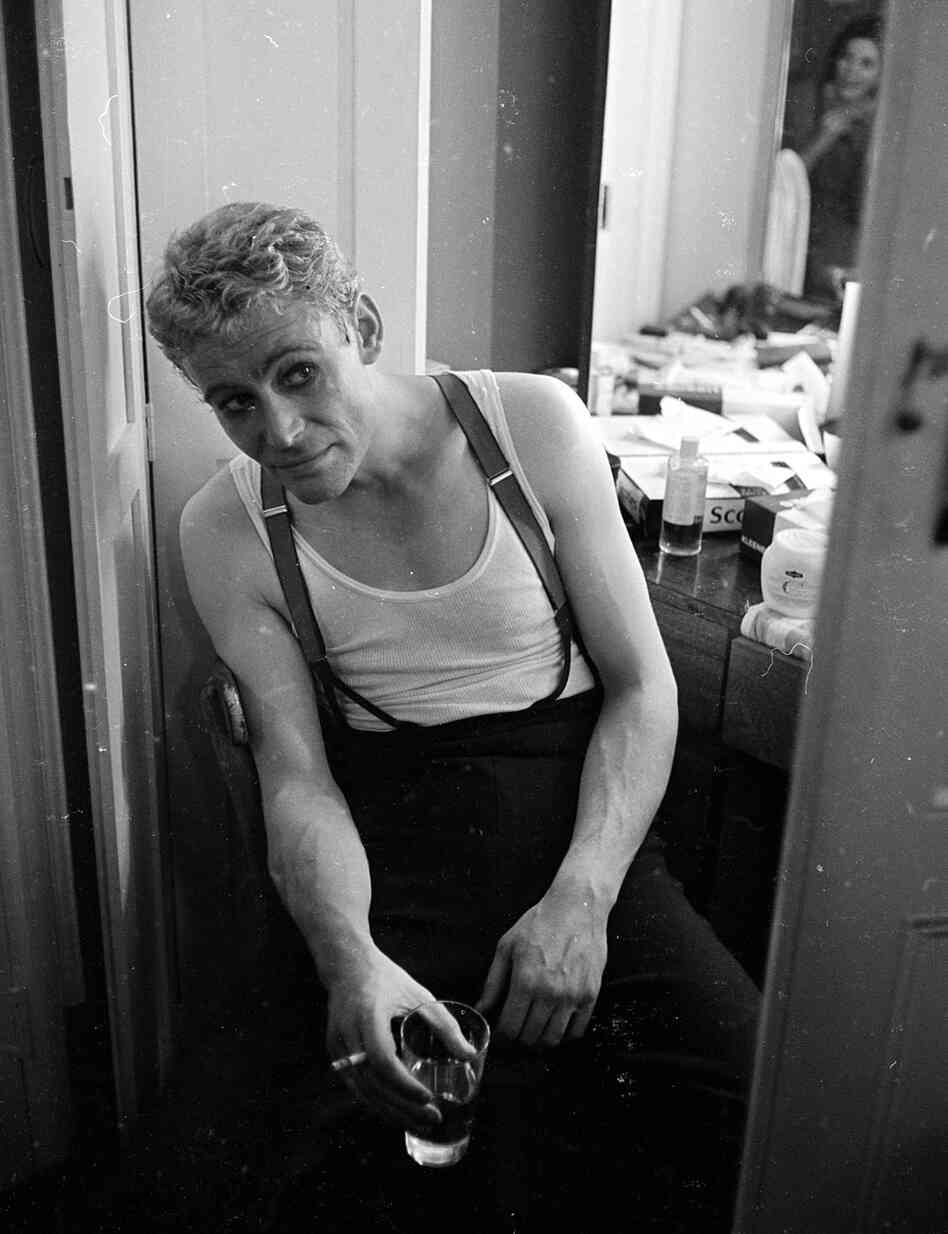The boisterous drinking habits of the four actors are chronicled in the book “Hellraisers,” by Robert Sellers.
 |
| Robert Sellers |
“Enjoy it; they bloody well did,” Mr. Sellers tells his readers at the book’s start. And then off he goes, digging up the wild, headline-making antics of his book’s four principals. Since each of them behaved like a tabloid reporter’s dream and did his best carousing in public, Mr. Sellers has plenty of fine one-liners to replay and bouts of mad excess to describe. How accurate are these stories? That can’t be a serious question. On the occasion when Mr. Reed is said to have drunk 126 pints of beer in 24 hours, it’s highly unlikely that anyone really bothered to keep the numbers straight.
 |
| Richard Burton. |
“I felt like singing and began to woo an insurance building,” Mr. O’Toole said on another occasion, with his usual aplomb. (Mr. O’Toole is also a memoirist who has written eloquently about his adventures.) “Stripped, I am monstrous,” Mr. Burton said about his reputation as a ladies’ man. Mr. Harris joked of having formed a support group called Alcoholics Unanimous that worked this way: “If you don’t feel like a drink, you ring another member and he comes over to persuade you.” Mr. Reed, by far the most hellish of the four, had an eagle’s head tattooed on his shoulder. He also had the eagle’s claws tattooed on the part of his body that he most enjoyed exposing without warning. “Would you like to see where it’s perched?” he liked to ask about the bird.
 |
| Richard Harris |
Of course each of these actors carefully cultivated an air of forgetfulness, even in his prime. Upon being told that his first wife had temporarily left him and taken their child, Mr. Harris later remarked: “Did she? I wasn’t fully aware.” Like Mr. Sellers’s other subjects, he perfected a cavalier panache that allowed him to glide through life delivering boozy bon mots, thus eclipsing certain unpleasant realities. (Harris could turn violent, and both of his wives apparently lived in fear of him.) The selective use of memory seemed to go with these actors’ territory, as when Mr. O’Toole once advised Michael Caine to avoid dwelling on bad behavior. “Never ask what you did,” Mr. O’Toole supposedly told his fellow actor. “It’s better not to know.”
 |
| Peter O'Toole. |
But when it came to bleak makeup jokes, nothing here beats a story about Mr. Burton during the filming of “The Klansman,” one of his worst. “If you want to interview a drunk or see a drunk fall in the camellia bushes, come ahead,” that film’s publicist supposedly told the press. And when the film’s makeup artist was complimented on how well he had prepared Mr. Burton for his death scene, the makeup man replied: “I haven’t touched him.”
 |
| Oliver Reed. |
“Hellraisers” can be read as heedlessly as it was reported and lived. But it winds up being far less lighthearted than it looks at first glance. As the evidence of carousing accumulates, so does the ponderousness. The stories become repetitive. The principals grow too old to live life on one long bender. And on those occasions when they do sober up, a couple of them complain that drunks are annoying bores. Their wives, Mr. Sellers says, could not have agreed more.
HELLRAISERS
The Life and Inebriated Times of Richard Burton, Richard Harris, Peter O’Toole and Oliver Reed
By Robert Sellers
Illustrated. 286 pages.
Thomas Dunne Books.


No hay comentarios:
Publicar un comentario